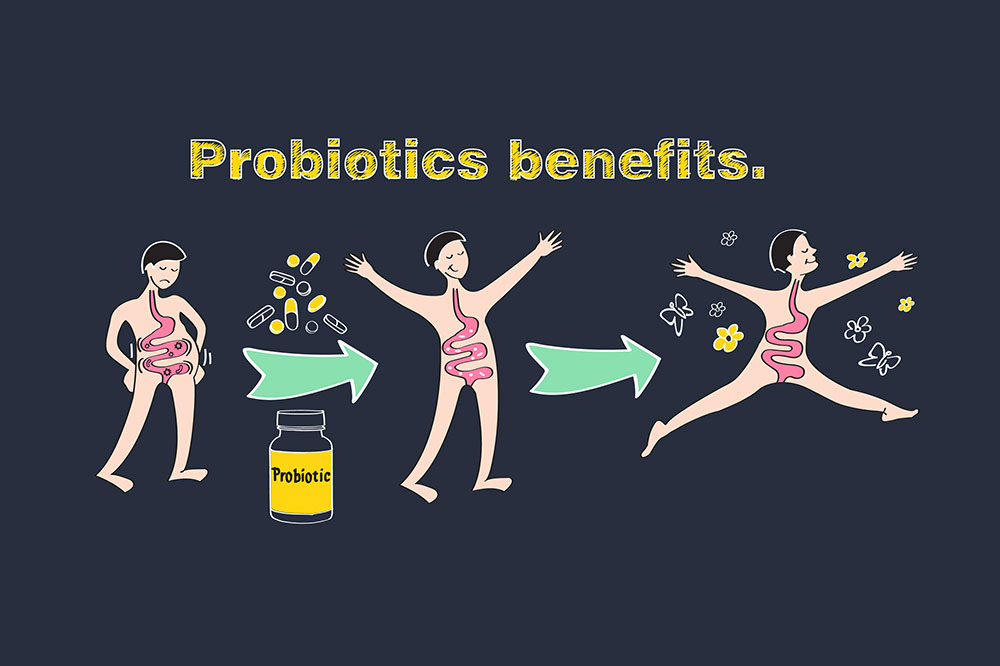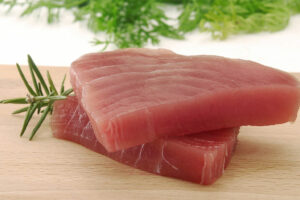6 major benefits of having probiotics

Probiotics have gained significant popularity in the last two decades, and rightly so. They can be had through fermented foods or supplements and are primarily linked to benefit digestive health and immune function. The term “probiotic” comes from the Latin words pro and biota, meaning “for life.” While bacteria have a widespread reputation for causing disease, many Northern Europeans are known to consume these beneficial microorganisms to achieve well-balanced health.
How probiotics work
Probiotics are good and healthy bacteria that are found in probiotic foods and other supplements. They care for gut health and help maintain a healthy gut microbiome. They are found in fermented foods like yogurt, sauerkraut, kimchi, tempeh and kefir. They are also available in supplements like capsules, powders, and liquid beverages. Many digestive specialists recommend probiotic foods for curing conditions like irritable bowel syndrome and food regurgitation. Some recent studies have also pointed out that probiotic foods can delay the development of allergies in children, prevent vaginal infections in women, and promote overall health. The body develops a lot of bacteria through the consumption of probiotic food, which offers a plethora of benefits for one’s health. Here is the list of benefits:
Improved digestion
Studies have pointed out that over one million Americans suffer from some form of digestive disorders like ulcerative colitis, Crohn’s disease, and irritable bowel syndrome. While probiotics have a marginal effect on symptoms relating to Crohn’s disease, they seem to remarkably reduce symptoms relating to IBS. In addition, specific probiotic strains of Bifidobacterium and Lactobacillus have significantly impacted reducing the symptoms in people with mild to moderate ulcerative colitis.
Better vaginal health
The dominant Lactobacilli bacterial strain usually expels harmful microorganisms into this organ. These bacteria make the environment too acidic for any organism to survive. However, the imbalance could happen when the person is taking certain antibiotics, birth control pills, and spermicides. Such imbalance could lead to a wide range of trouble, from irritation on the skin to infection of the vaginal walls. Probiotic treatment ensures to bring balance by restoring microflora (bacteria). This restoration addresses common urogenital problems like yeast infection, urinary tract infection, and bacterial vaginosis. Yogurt is an excellent source of probiotics, and some folklore medication recommends the physical application of yogurt in the vaginal region. Still, modern medicine recommends only oral consumption (eating) of yogurt.
Mental wellbeing
Many studies have pointed to the connection between gut health and mood, in the sense that probiotics in their raw form or supplements can improve mental health disorders like anxiety, depression, obsessive-compulsive disorder (OCD), and memory. A consistent intake of probiotics for about eight weeks is known to decrease depression levels and C-reactive protein, a marker of inflammation of the body and hormones such as insulin, compared to those who did not take probiotics. In short, probiotics enable the production of mood-stabilizing neurotransmitters like serotonin and dopamine, positively affecting cognitive functions.
Improved cardiac health
A study containing 30 randomized clinical trials found that taking probiotics significantly and positively affects total cholesterol levels. Some types of bacteria can produce lactic acid, which breaks down the bile in the gut, thereby reducing cholesterol levels. In addition, it also keeps both systolic and diastolic (the top and bottom number) blood pressure under check. However, to obtain the optimum benefit of probiotic food or supplements, it is recommended to be consumed for 8 to 10 weeks.
Better skin
Probiotics have certainly revolutionized the skincare regime with a separate line of cosmetics introduced by almost every leading cosmetics manufacturer that has probiotics as an active ingredient. The bacteria ecosystem on the skin is crucial for one, it covers the body’s largest organ, and two, it regulates inflammation and provides an active shield against various pathogens.
Many experts have pointed out that when the microbes’ ecosystem gets imbalanced, it could result in various infections or skin conditions like acne, eczema, and rosacea. Imbalance could happen due to changes in the skin’s pH levels, stress, and severe inflammation of the body.
In such cases, therefore, it becomes imperative to have a sound meal plan in place to bring back order and balance to the microbe world. Using probiotics as a pill or topical form helps treat skin conditions like eczema, acne, dry skin, and UV-related or induced skin damage. Additionally, probiotics boost the production of ceramides, a form of fat (lipids) that trap the moisture in the skin and check acne-causing bacteria. For those with eczema, in particular, the ceramide levels are known to be on the lower side, and replacing them is of great importance, and probiotic is an efficient way for the same. Probiotics also protect against any damage caused by free radicals.
Better body-mass index
There are quite a few ways in which probiotics help in weight loss. Probiotics primarily aid in preventing the absorption of fat in the intestine. The fat in such cases is excreted through fecal matter instead of getting stored in the body. Probiotics also help the body burn more calories and store less fat. This is largely aided due to the increased levels of hormones that stimulate insulin secretion.
Besides improving fitness, several nutritional probiotics on the market help improve the health of the mouth. These options promote long-lasting fresh breath and better teeth and gum health. They also benefit the immune health of the throat, ears, and nose. One should speak to a healthcare expert about the best probiotic options for their overall health.



